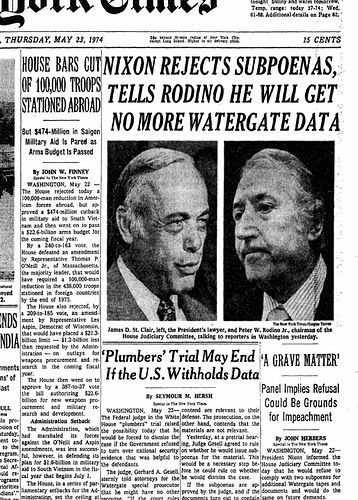This letter is spot on. Two paragraphs at the end especially stood out to me. First, Nadler exposes that the DoJ’s stonewalling of the Judiciary Committee’s requests for documents is baseless, considering that the DoJ recently turned over mountains of documents during the Clinton e-mail investigations (emphasis is mine):
Accommodation requires negotiation that takes into account the legitimate interests and responsibilities of both Congress and the Department. Your proposed conditions are a departure from accommodations made by previous Attorneys General of both parties. As recently as last Congress, the Department produced more than 880,000 pages of sensitive investigative materials pertaining to its investigation of Hillary Clinton, as well as much other material relating to the then-ongoing Russia investigation. That production included highly classified material, notes from FBI interviews, internal text messages, and law enforcement memoranda. The volume of documents cited in the Special Counsel’s report is surely smaller, and the Committee is willing to work with the Department to prioritize production of materials even within that defined category. Additionally, in the most recent prior instance in which the Department conducted an investigation of a sitting President, Kenneth Starr produced a 445-page report to Congress along with 18 boxes of accompanying evidence.
Next, Nadler unequivocally establishes Congress’s absolute right to investigate the President (emphasis is mine):
Lastly, it cannot go unremarked that, in refusing to comply with congressional oversight requests, the Department has repeatedly asserted that Congress’s requests do not serve “legitimate” purposes. This is not the Department’s judgment to make. Congress’s constitutional, oversight and legislative interest in investigating misconduct by the President and his associates cannot be disputed. The Committee has ample jurisdiction under House Rule X(l)to conduct oversight of the Department, undertake necessary investigations, and consider legislation regarding the federal obstruction of justice statutes, campaign-related crimes, and special counsel investigations, among other things.
By writing this “final notice letter” and setting a Monday morning deadline, Nadler is expertly walking a fine line between 1) demonstrating to the courts that he is giving Barr ample opportunity to comply and 2) moving expeditiously towards contempt proceedings. 







